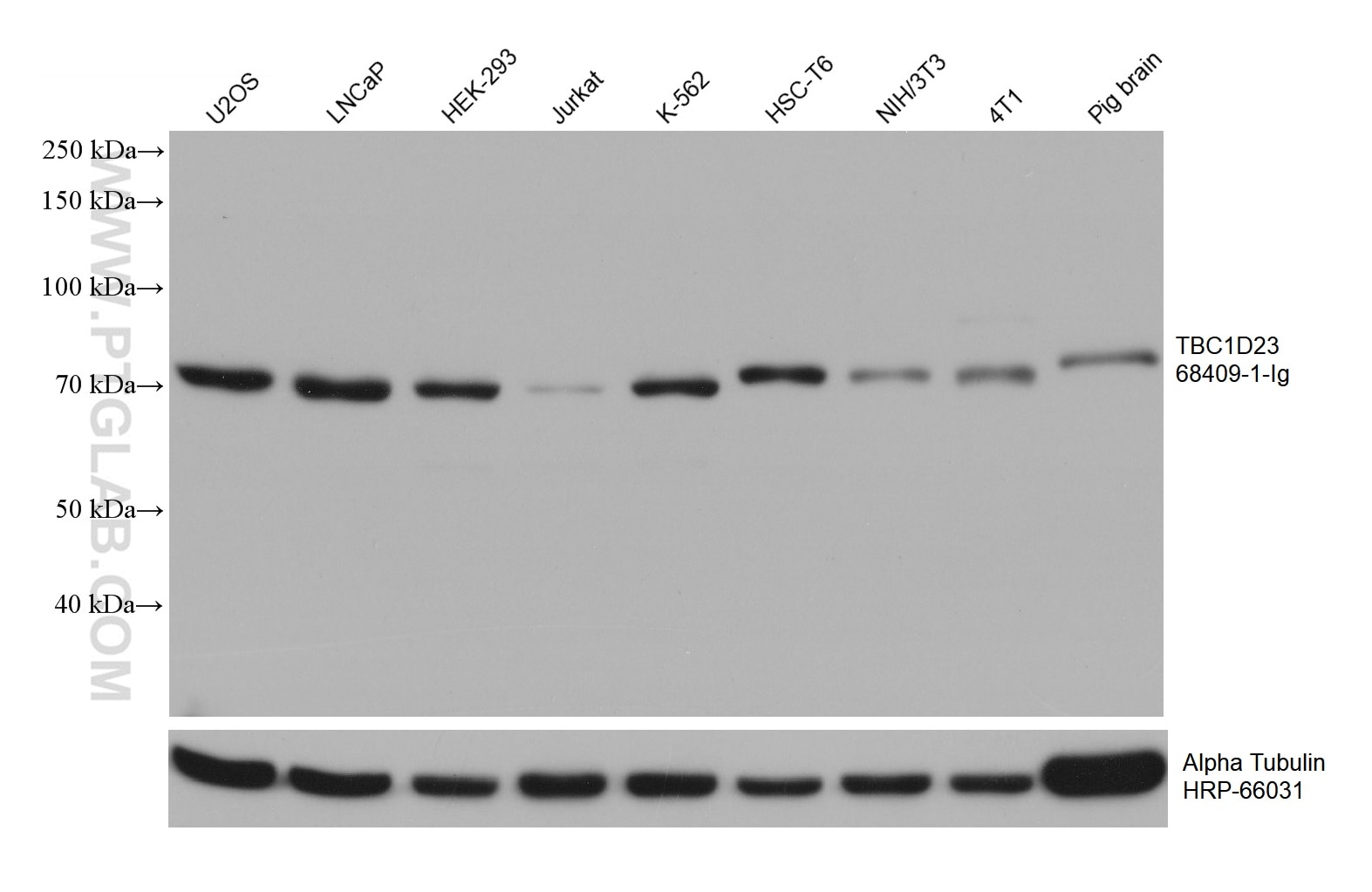Tested Applications
| Positive WB detected in | U2OS cells, LNCaP cells, HEK-293 cells, Jurkat cells, K-562 cells, HSC-T6 cells, NIH/3T3 cells, 4T1 cells, pig brain tissue |
Recommended dilution
| Application | Dilution |
|---|---|
| Western Blot (WB) | WB : 1:5000-1:50000 |
| It is recommended that this reagent should be titrated in each testing system to obtain optimal results. | |
| Sample-dependent, Check data in validation data gallery. | |
Product Information
68409-1-Ig targets TBC1D23 in WB, ELISA applications and shows reactivity with Human, mouse, rat, pig samples.
| Tested Reactivity | Human, mouse, rat, pig |
| Host / Isotype | Mouse / IgG2a |
| Class | Monoclonal |
| Type | Antibody |
| Immunogen | TBC1D23 fusion protein Ag10727 Predict reactive species |
| Full Name | TBC1 domain family, member 23 |
| Calculated Molecular Weight | 699 aa, 78 kDa |
| Observed Molecular Weight | 78 kDa |
| GenBank Accession Number | BC010221 |
| Gene Symbol | TBC1D23 |
| Gene ID (NCBI) | 55773 |
| RRID | AB_3085126 |
| Conjugate | Unconjugated |
| Form | Liquid |
| Purification Method | Protein A purification |
| UNIPROT ID | Q9NUY8 |
| Storage Buffer | PBS with 0.02% sodium azide and 50% glycerol, pH 7.3. |
| Storage Conditions | Store at -20°C. Stable for one year after shipment. Aliquoting is unnecessary for -20oC storage. 20ul sizes contain 0.1% BSA. |
Background Information
TBC1D23, also named as NS4ATP1, is a gene down-regulated by Pneumocystis infection. Pneumocystis pneumonia is a common opportunistic disease in AIDS patients. (PMID: 20377877) Recently it has been found that TBC1D23 gene is the most frequently mutated in MSI-H cell lines and protein expressions of TBC1D23 in tumors with mutation were down regulated.(PMID: 20824714)
Protocols
| Product Specific Protocols | |
|---|---|
| WB protocol for TBC1D23 antibody 68409-1-Ig | Download protocol |
| Standard Protocols | |
|---|---|
| Click here to view our Standard Protocols |



